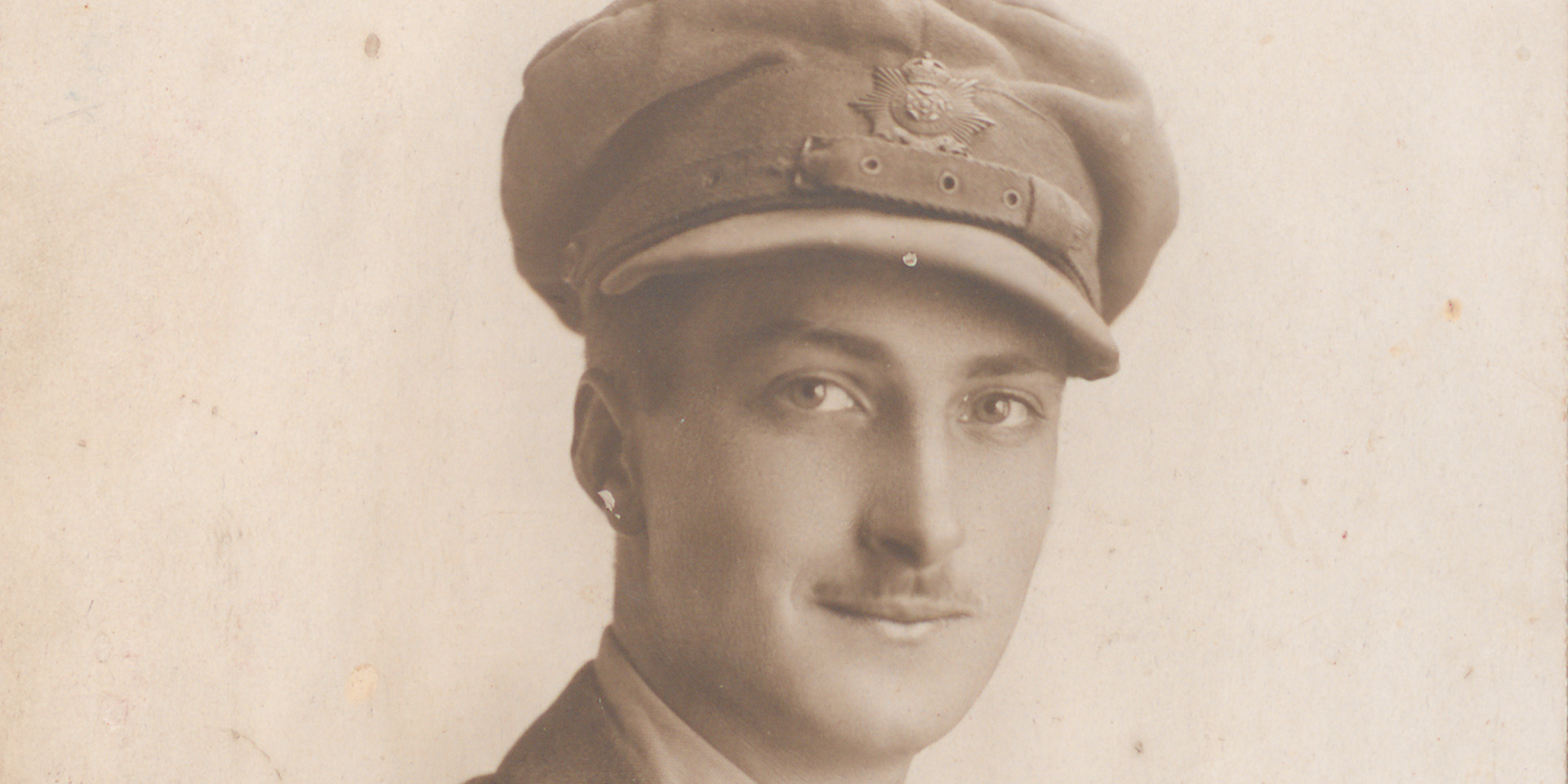Sheffield soldier’s diary reveals the harrowing conditions of the Somme
The National Army Museum is publishing extracts from the diary of Sheffield soldier Eric Hall, which gives a striking insight into the state of mind of British soldiers in the last weeks of the Somme Offensive. Second Lieutenant Hall’s description of the Battle of Le Transloy (1-18 October 1916) and its aftermath shows the strain felt by troops pushed to their limits by weeks of service on the battlefields of the Somme.
On 13 October Hall took part in the assault of the German lines on the outskirts of Guedecourt. His unit stormed an enemy position, having to ‘bomb the Boche out of part of the trench’ and then hold it when ‘the Boche counter-attacked in the evening.’
On 15 October Hall describes coming across a dugout ‘which had been blocked up by German dead’ - a chilling example of the awful physical and emotional toll of the battle on both sides. He also recorded the deaths of two fellow lieutenants. These few days of fighting resulted in the death of 34 men and injuries to a 150 more.
As the Battle of the Somme dragged on into October and November, many soldiers reached their breaking point. Army records show an increase in the number of court-martial cases in Hall’s brigade in this period. Several men were charged with shooting themselves in the foot in a desperate attempt to escape the horrors of the battlefield. One desperate man resorted to desertion, only to be captured and sentenced to death by firing squad.
On the first day of the Battle of the Somme Hall had seen half of his division killed going over the top, an experience he described as something like ‘a bad dream’. In August 1916 his battalion was transferred to Ypres, where it's 101 men and officers were killed during a gas attack. When they returned to the Somme in October, they were already exhausted and under terrible strain. He recounts how two lieutenants were so affected by ‘nerves’ and shell shock they were unable to go on.
Hall also struggled in the appalling conditions. On 20 October he wrote,
‘One of the worst days of my life. Was out in mud and pouring rain, sopping wet through all day, stretcher bearing’. Hall writes, ‘the casualties during and after the attack on the 18 October were very heavy. Lieutenants Aitcheson, Cain and Elton were killed, Sergeant Major Rideout is missing and amongst the wounded are Lieutenants Gilman, Rutherford, Gravely and Graham. Lieutenant Todd had shell shock and Captain Cudden and Lieutenant Baxter had to go away ill’.
Dr Peter Johnston, Head of Collections and Development Review at the National Army Museum says:
‘Eric Hall’s diary shows just how mentally exhausted the British had become by October 1916. The increase in court martials and desertions at this time shows the lengths soldiers were willing to go to avoid serving on the front lines. Hall’s observations vividly illustrate how a combination of nerves, fatigue and terrible weather had begun to grind down the spirit of the troops, and eventually made continuing the offensive impossible. His account reminds us of the importance of the human stories that shaped the course of the war.’
The Somme Offensive was finally shut down by General Sir Douglas Haig on 18 November when the Allied advance faltered and eventually petered out. For an advance of seven miles, the British Empire had suffered 420,000 casualties and the French 200,000. German losses were at least 450,000.
Notes for editors
For more information, please contact the National Army Museum press office at pr@nam.ac.uk or 020 7881 2433.
Second Lieutenant Eric Hall
Eric Peace Hall was born on 1 January 1893 in Sheffield. After leaving school he became an engineering apprentice and studied engineering at Sheffield University. In 1915 he was commissioned as second lieutenant and posted to the 13th Battalion of the Hampshire Regiment. He briefly served in Egypt before he was sent to the Western Front in April 1916.
After the war, Hall returned home to wed his sweetheart, Nellie. In 1919 he transferred to the Royal Engineers, but left the army shortly after. In 1939 he returned to the colours with the Royal Engineers Reserve, serving on the North West Frontier as a garrison engineer. Hall retired from the army in 1946, and was granted the honorary rank of major. He died in 1967, in Bakewell, Derbyshire.
National Army Museum
The National Army Museum is the leading authority on the history of the British Army. Founded in 1960 by Royal Charter and established for the purpose of collecting, preserving and exhibiting objects and records relating to the Land Forces of the British Crown it is a museum that moves, inspires, challenges, educates and entertains. The Museum tells the story of the British Army, the personal experiences of the soldiers who have served and connects the British public and its Army demonstrating how the role of the Army and its actions are still relevant today.
Heritage Lottery Fund
Using money raised through the National Lottery, the Heritage Lottery Fund (HLF) aims to make a lasting difference for heritage, people and communities across the UK and help build a resilient heritage economy. HLF has supported 36,000 projects with £6bn across the UK.
For more information, please contact Katie Owen, HLF press office, on tel: (020) 7591 6036 out of hours mobile: 07973 613820.


